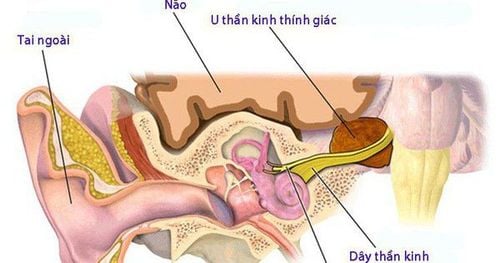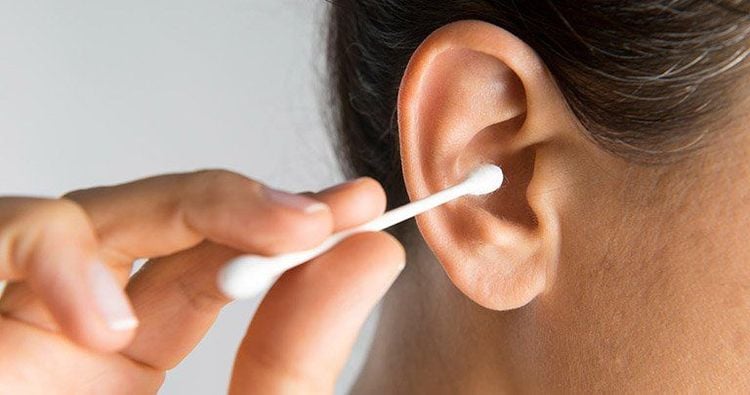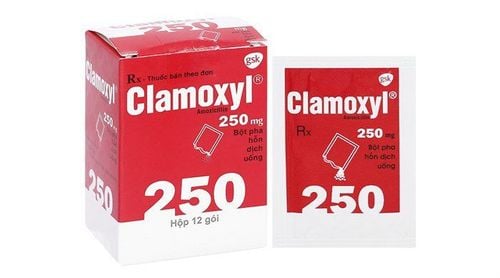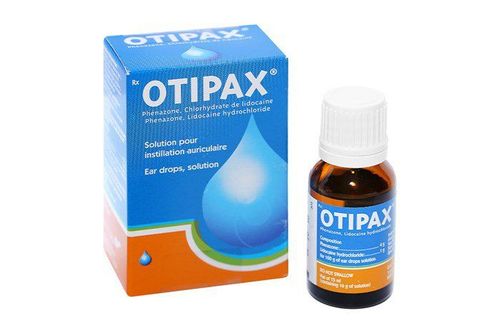Tinnitus is a common symptom caused by various medical conditions. Although it is not harmful to health, it significantly impacts patients' work and daily lives. Therefore, when experiencing tinnitus, patients should seek medical consultation to determine the cause and engage in treatment as soon as possible.
1. What is tinnitus?
Tinnitus is not a disease but a symptom caused by different medical conditions. When experiencing tinnitus, patients may hear noises in the ears. Even in a quiet place, patients can still hear these unusual sounds. These noises may occur in one ear or both, depending on each individual. The sounds patients hear may resemble cicada sounds, the whooshing of wind, whistling, the mill grinding noises in a harvest, the roar of an airplane, or even growling sounds. These noises appear unpredictably; sometimes, they occur intermittently, and at other times, they persist continuously.
Some statistics show that around 20% of the global population has experienced tinnitus. In Vietnam, many patients with tinnitus seek treatment at healthcare centers. People with tinnitus often feel uncomfortable, and irritable. It also affects their daily lives, work and causes distraction and sleep disorders. In severe cases, tinnitus can lead to depression. Therefore, if a person hears unusual noises, the ears might experience an issue. It is best to see a doctor to identify the cause and receive treatment as soon as possible.
2. What causes tinnitus?
The key principle in treating tinnitus is to address its root cause. Tinnitus in some patients may be completely resolved after treating the underlying cause, such as infections or blockages. However, some patients may continue to suffer from tinnitus even after the root cause is treated. In such cases, doctors must combine various treatment methods to eliminate symptoms and protect the patient's hearing. Common causes of tinnitus include:
2.1 Blocked ear canal
Blockages in the outer or inner ear canal or perforated eardrum can change the pressure in the eardrum, leading to tinnitus. Common causes include excessive earwax, improper ear cleaning techniques, boils, or tumors blocking the ear canal.
2.2 Damage to hearing cells
Hair cells can be damaged by several factors:
- Hearing impairment in the elderly due to ossification of the hammer and anvil bones.
- Ear injuries and trauma from prolonged exposure to loud noises, such as rock music, heavy machinery, or construction noise. This condition can also occur in individuals who frequently use headphones at high volumes.
- Certain medications, such as aminoglycoside antibiotics (streptomycin, gentamycin), can damage hearing ability.
- Trauma to the head or neck can also damage the inner ear.
2.3 Certain medical conditions
- Circulatory system diseases, such as atherosclerosis, can cause tinnitus. This condition makes the large blood vessels near the middle and inner ear lose elasticity gradually, causing blood to flow more forcefully. It leads to a whooshing sound in the ear.
- Hypertension can also lead to tinnitus.
- Factors like stress, alcohol, caffeine, and other stimulants can cause abnormal sounds in the ear.
- Malformations at the junction of veins and arteries can result in tinnitus.
- Tumors in the head or neck region.
- Acoustic neuroma.
- Meniere disease: An inner ear disorder caused by abnormal fluid and endothelial ions.

3. What to do when experiencing tinnitus?
Tinnitus can significantly impact a patient's work and daily life. Therefore, many people wonder what to do when experiencing tinnitus. If you are dealing with tinnitus, you can apply the following methods:
- Limit stimulants such as nicotine and caffeine, as they can constrict blood vessels and increase blood flow speed through arteries and veins. Alcohol, on the other hand, dilates blood vessels, increasing the volume of blood flowing through, particularly in the inner ear, which can worsen tinnitus.
- Regularly and properly clean your ears. If you are unsure how to use or find it inconvenient to use an ear-cleaning kit such as cotton swabs or earwax removal sticks, you should ask someone skilled in their use to assist you. You can also visit reputable and hygienic earwax removal places. An extremely simple method you can do yourself is to use a clean cloth to clean around the ear cavity. Additionally, do not forget to keep your ears dry to minimize the risk of ear infections.
- Limit noise exposure. In a quiet place, try to reduce noise levels. You may listen to soothing music to shift your focus from the bothersome sounds in your ears. Some people use devices that emit pleasant sounds to alleviate tinnitus. If you work in a noisy environment, take a break every 20 minutes to rest your ears in a quiet place or wear hearing protection device to shield your ears from noise.
- Develop an appropriate diet: Audiologits recommend that people with tinnitus should consume omega-3 fatty acids (commonly found in fish) and vitamin D. Studies show that those who eat fish regularly every week may reduce risk of tinnitus. Additionally, foods such as spinach, broccoli, and beans are suggested to improve tinnitus. As they are rich in antioxidants and folic acid, which help reduce free radicals in the body.
- Try to relax, reduce stress, and engage in regular physical exercise to enhance overall health.
- Put both palms over your ears and slowly rub your outer ears in circular motions for 1 minute until your ears feel warm. Then, use your middle finger to plug your ear canal and pull it out quickly, repeating this action about 50 times. Another method is to perform "ear drumming" by cupping your palms over both ears, with your fingers pointing backward and slightly curved, pressing rhythmically, alternating between firm and gentle pressure. Perform this about 30 times. Then, use your index and middle fingers to tap behind the ears approximately 30 times.
- Prolonged tinnitus can be treated by trying to heat a small amount of coarse salt, placing it in a small pouch, and applying it around the ears while still warm. The mild heat from the salt can quickly alleviate tinnitus symptoms.

4. Treating tinnitus with traditional medicine
You can treat tinnitus using several simple traditional remedies, as follows:
4.1.Remedy for tinnitus caused by noise exposure
- Use 10g of mulberry leaves, 10g of gotu kola, 12g of semen cuscutae, and 16g of smilacaceae.
- If you have high blood pressure, add 10g of bamboo leaves; for low blood pressure, add 6g of mugwort; for insomnia, add 8g of coral tree leaves.
4.2. Remedy for tinnitus caused by fatigue and stress
- Use 16g of roasted black beans and 12g each of herbs such as fleeceflower, semen cuscutae, tetracera scandens, and rhizoma dioscoreae.
- If experiencing difficulty in sleeping and a slow heart rate, add 12g of passionflower and 6g of mugwort.
- If experiencing short sleep durations and a rapid heart rate, add 10g of goose grass and 12g of chrysanthemum flowers.
4.3.Remedy for tinnitus caused by heat
- Use 6g of chrysanthemum flowers, 12g of black beans, 8g of gotu kola, 10g of black sesame, 6g of bamboo leaves, and 10g of adenosma caeruleum.
- If the patient has high blood pressure, add 50g of fresh celery; for low blood pressure, add 100g of fresh katuk and 6g of mugwort.
- Method for decocting these remedies: Use one prescription per day. Decoction is done twice a day, using three bowls of water and boiling it down to half a bowl for each decoction. Drink the decoction warm twice daily, in the morning and afternoon.
4.4. Remedy with garlic
- Peel garlic, clean, and crush it.
- Place the crushed garlic and olive oil in a pan, heat on low, and stir until fragrant. Then, turn off the heat.
- After cooling, filter out the residue, collect the solution, and store it in a clean glass bottle.
- Lie on the side so that the affected ear is facing upward, and drop 2–3 drops of garlic oil into the ear.
- Place a cotton swab over the ear canal and leave it for 10–15 minutes.
- Perform this 1–2 times daily for noticeable results.
4.5. Remedy with ginger
Ginger, a familiar spice to Vietnamese people. It has numerous benefits, such as aiding digestion, antibacterial abilities, immune system enhancement, and improving ear infections, thereby reducing tinnitus.
Use washed, peeled ginger sliced into thin pieces. Place the slices in a cup, pour boiling water over them, and steep for 5–10 minutes. It is better to add a bit of honey to the ginger tea before drinking.
4.6. Remedy with passionflower
Passionflower is a medicinal herb with cooling, liver-cleansing, and calming properties, as well as being effective against tinnitus. The patient can use dried passionflower, and steep it with hot water like tea for 15 – 20 minutes. After straining out the residue, add some honey to enhance the flavor. Passionflower tea can be consumed throughout the day.
In conclusion, tinnitus is a symptom caused by various factors. While not dangerous, it causes discomfort, fatigue, and significantly impacts the quality of life. If you experience tinnitus symptoms, you can apply the methods mentioned above to quickly relieve the symptoms. However, do not overlook the issue; visit medical facilities to identify the root cause of the tinnitus and receive timely treatment.
To arrange an appointment, please call HOTLINE or make your reservation directly HERE. You may also download the MyVinmec app to schedule appointments faster and manage your reservations more conveniently.
To arrange an appointment, please call HOTLINE or make your reservation directly HERE. You may also download the MyVinmec app to schedule appointments faster and manage your reservations more conveniently.








